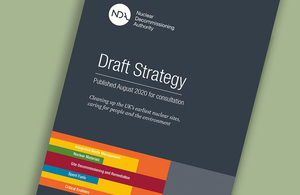Lovers of Scotch whisky and other Scottish distilled spirits will soon be able to enjoy their favourite tipple in the knowledge that they are helping to cut carbon emissions and support new green jobs, thanks to a new UK Government scheme which opened today (17 August).
Kwasi Kwarteng, Minister for Energy and Clean Growth, today announced the opening of the £10 million fund, which is being made available to kick-start green innovation across Scotland’s iconic distillery industry. The move gives backing to distilleries across the UK to harness energy sources such as low-carbon hydrogen, biomass and repurposed waste to power their operations.
Currently, there are 133 malt and grain distilleries operating in Scotland making up nearly half of all distilleries in the UK. The government funding will help them produce their world-famous wares while contributing to taking pollution equivalent to emissions from 100,000 cars out of the atmosphere.
Energy and Clean Growth Minister, Kwasi Kwarteng, said:
Scottish distilleries will not only be producing iconic drinks enjoyed the world over, but will now also be blazing a trail by developing cutting edge low carbon technologies in the process.
We want to harness the tremendous innovation of our distilleries so customers can enjoy their favourite tipple in the knowledge they are helping to tackle climate change.
Greening distillery operations in Scotland and across the rest of the UK will help contribute towards its legally-binding target of reaching net-zero emissions by 2050. The funding comes as the UK government continues to ramp up its green economic recovery from Coronavirus ahead of hosting the UN Climate Change talks (COP26) in November next year.
As well as decarbonising the Scotch industry, the funding will also be open to distillers producing Scotland’s world class gins. There are over 110 Scottish gins being produced by more than 60 distilleries, and three of the world’s bestselling gins Hendrick’s, Gordon’s and Tanqueray are all made in Scotland.
Visiting Benromach Distillery in Speyside, UK Government Minister for Scotland, Iain Stewart, said:
Scotland is world famous for its whisky and gin distilleries, they are one of our greatest success stories and as I have seen for myself at Benromach Distillery are at the heart of our local communities employing over 11,000 people many in our rural areas.
This new funding from the UK Government will help the industry to continue the great work so far reducing emissions, adopting new green technologies and create more jobs, all vital on the path to recovery from Coronavirus.
The announcement of today’s funding has also been welcomed by trade bodies and industry experts. Dagmar Droogsma, Director of Industry at the Scotch Whisky Association, said:
The Scotch Whisky industry welcomed the new Green Distilling Fund announced in the March Budget as an important step on our sustainability journey. The use of innovative technology is among several approaches that the industry could adopt as it works towards net zero by 2045, as outlined in our recent net zero report.
This Fund will provide us with the opportunity to put forward bids for demonstration projects for so-far untested technologies, helping the Scotch Whisky industry play its part in reaching Scotland’s emissions targets.



